Sachs: ‘We’re letting people die — poor people.’
A diverse crowd of poor and low-income West Virginians took their questions about Build Back Better to a renowned economist on Monday as the Poor People’s Campaign: A National Call for Moral Revival held a community forum on President Biden’s agenda to provide a critical first step in building the country from the bottom up.
Economist Jeffrey Sachs, a professor at Columbia University, spoke at the forum in Charleston, West Virginia, as did the co-chairs of the PPC:NCMR, Bishop William J. Barber II, DMin., and Rev. Dr. Liz Theoharis. Dr. Sachs then took questions from forum participants, who wanted to know why their senator, Joe Manchin, had cut the bill that would help so many of them and their neighbors.
“He’s not representing the people of West Virginia at all. He left you behind,” said Dr. Sachs, who throughout the forum methodically dismantled each of Manchin’s reasons for not supporting a complete Build Back Better Plan. Sachs said he had also tried to reach out to Manchin but was not successful.
“We could solve all these problems without breaking a sweat,” Sachs said. “They start saying ‘It’s trillions, it’s trillions,’ and Manchin says, ‘Oh, we can’t afford that,’ like no one would do the most basic, honest arithmetic. You know what this package is now, after it’s been cut, and cut, and cut? It’s not even 1% of our income in this country.”
Hunter Sparks, a lifelong West Virginian, testified about the hard choice they had to make between caring for an elderly family member, childcare, and keeping their job. “I had a good job that could have been a career. But I had to resign because I have to care for my daughter and grandmother,” Sparks said. “I was not born into poverty, but have been forced into it as an adult because of policies.”
Some 140 million Americans are poor or low-income, including 710,000 in West Virginia, or 40% of that state’s population. This includes 50% of children (187,000), 44% of women (402,000) , 51% of Black people (30,000), 55% of Latinx people (13,000), and 42% of white people (689,000). Some 108,000 West Virginians are uninsured as of 2018, and 47% of census tracts in West Virginia are at-risk for being unable to afford water. And 351,000 make under $15 an hour. That’s 50% of West Virginia’s workforce as of 2018, the ninth-highest of all states
Bishop Barber said it’s time to use accurate language to describe what Sen. Manchin’s actions.
“… I try not to use the L-I-E word, but you have to call it what it is,” he said. “There’s a lot of lying going on. I don’t have anything against your senator from a personal standpoint, but I have a problem with his public policy. He tells leaders that he can’t do these things because you all don’t want it. That’s what he says in the back room, on CNN. He says, ‘I have to do what West Virginians want. They’re center right and don’t want a $15 minimum wage. They don’t want to rein in the issues hurting us.’ That’s what he said. The question is, what do you say?”
Rev. Theoharis called out Sen. Manchin, who has fought Build Back Better at every turn, for saying the country can’t afford it.
“The richest country in the world has abundant resources to provide a life for its citizens to thrive,” she said. “The original proposal was already too small, and now we are left fighting for scraps. Multi-millionaires like Senator Manchin are playing politics with people’s lives. We cannot keep living like this.”
Deedra Keys-Switzer, a local college level instructor, talked about the importance of higher education. ““We hear constantly that the increasing financial burden of school is challenging to students and their families,” she said “There are students being pushed out financially and in other ways. We lost so much when we decided not to expand the two free years of college.”
The deletion of free community college is just mean, Dr. Sachs said. “In other countries, they find ways for people to go to college and specialized trade schools and not end up with massive amounts of debt. But not here, because of money,” he said.
Pam Garrison, tri-chair of the West Virginia Poor People’s Campaign and a lifelong low-wage worker, said her heart broke as she listened to the concerns of her fellow West Virginians.
“They’ve voted to tear down my grandchildren’s future and I am not taking it, and my fellow West Virginians are not taking it… Manchin says it will add to the deficit and his grandchildren will be paying for it,” she said. “Well my grandchildren are in poverty. Am I fighting a losing battle or do I have a country with me?”
West Virginia will join more than a dozen other states in actions at Senate offices across the country on Wednesday and will join with mobilizing partner organizations to demand that senators “hold the line” to pass the Build Back Better plan on Monday in Washington, D.C.
Other comments:
Ricardo Martin: “According to the CDC, West Virginia has the lowest life expectancy of any state… and Manchin knows it.”
Jean Evansmore, tri-chair of the West Virginia PPC: “The infrastructure bill will put billions of dollars into roads, water, infrastructure, solar panels, wind farms, batteries, electric vehicles, and more. How would this spending, especially on cleaner energy, impact coal production, which is a real concern for West Virginians? Is there a way this spending could actually help the economy here?”
